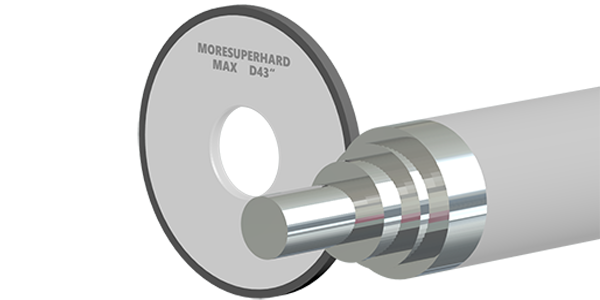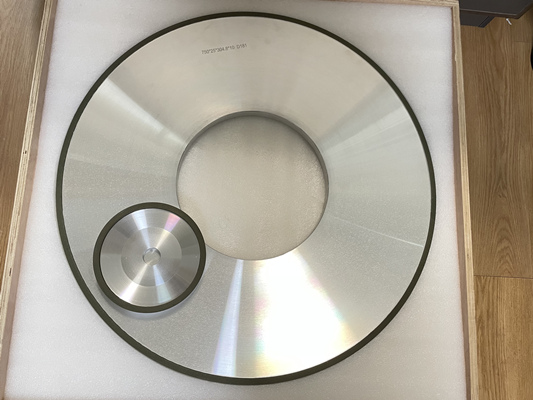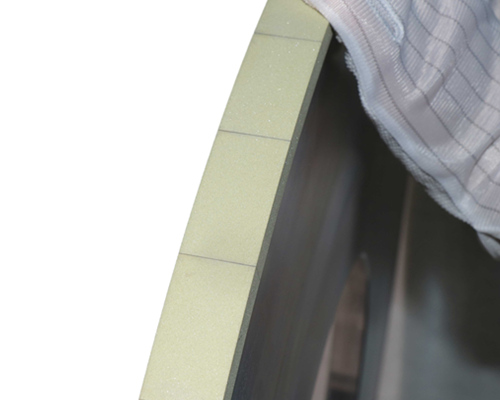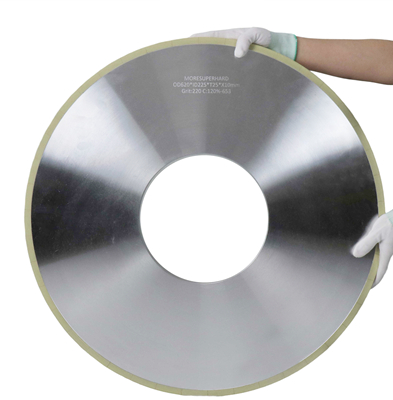Case of resin CBN grinding wheel for metal thermal spray coating
With the wide application of thermal spray technology in aerospace, machinery, electronics, iron and steel metallurgy, energy, transportation, petroleum, chemical industry and other fields, the requirements for coating grinding accuracy are getting higher and higher, which is exactly what the Moresuperhard team We have always provided customers with suitable and efficient grinding wheels to reduce costs and increase efficiency by maximizing the properties of binders and abrasives.
Thermal spray coating features:
Common coating materials include carbide, nickel-chromium alloy, zirconia, silicon carbide and other metal coatings, as well as ceramic or polymer coatings.
The material after spraying is relatively rough. Although it only has a thin layer, it has high hardness, brittleness, and small machining allowance. It requires grinding to achieve a certain accuracy and smoothness.
Superhard abrasive grinding wheel for thermal spray coating:
For most metal coatings with a hardness of around HV1000, silicon carbide abrasives can achieve effective grinding effects, but for coatings with higher hardness, their fine grinding capabilities and grinding efficiency are far from meeting customer requirements. Diamond abrasives have higher hardness and durability. They can effectively grind coating materials with a hardness of HV4000 and play an irreplaceable role in thermal spray coating grinding.
Grinding points:
1. Grinding method:
Mainly include outer circle, inner circle and surface grinding. For example, cylindrically ground HVOF coated hydraulic valves, larger roll coated cylindrical parts.
Diamond abrasives are suitable for molybdenum, tungsten carbide coatings, ceramic and cermet coatings. CBN abrasives are suitable for certain alloy steels and nickel-based, cobalt-based, iron-based PTA material coatings.
1. Granularity
Generally, coarse grinding can use 50-200# particle size, and fine grinding can use 400-600# particle size.
3. Bond
The resin bond grinding wheel has good self-sharpening properties. For example, when used to process WC-CO coatings, it can quickly remove excess material and produce a good finish. It can already meet the grinding requirements of most thermal spray coating customers.
Ceramic bond grinding wheel has better pore structure, high bonding strength, and stable grinding performance. Vitrified diamond grinding wheel is very suitable for grinding high-hardness coatings, such as ceramic coatings. The grinding efficiency and lifespan of vitrified diamond grinding wheel for thermal spray coating are better than those of resin grinding wheels, but it has higher requirements on equipment. It is difficult for general equipment to exert its characteristics of high speed and high grinding performance.
Case study of resin CBN grinding wheel processing thermal spray coating:
| Thermal spray coating | nickel cadmium boron alloy (72% nickel, 15% chromium, 4% boron) | |
| Size of resin CBN grinding wheel | Shape | 1A1 |
| Diameter | D500 | |
| Hole | H305 | |
| Thickness | T40 | |
| Diamond layer width | 10X | |
| Grit | 230/270 | |
| Workpiece size | diameter 114.3x length 370mm | |
| Grinding wheel speed | 1500rpm/min | |
| Feed amount | 0.02mm | |
| Single grinding wheel processes | 1,200 workpieces | |
MoreSuperhard has more than ten years of processing experience in the thermal spray industry. It has mature special formulas for different coatings and can provide a complete solution for grinding and polishing. Its stable and reliable ceramic/resin bond, diamond/CBN grinding wheel , highly recognized by customers in the steel and metallurgy, aerospace, textile, transportation, petroleum and energy industries at home and abroad. Contribute modest efforts to further promote the development of thermal spraying industry in my country.
—EDITOR: Doris Hu,Anna Wang
—POST: Doris Hu










